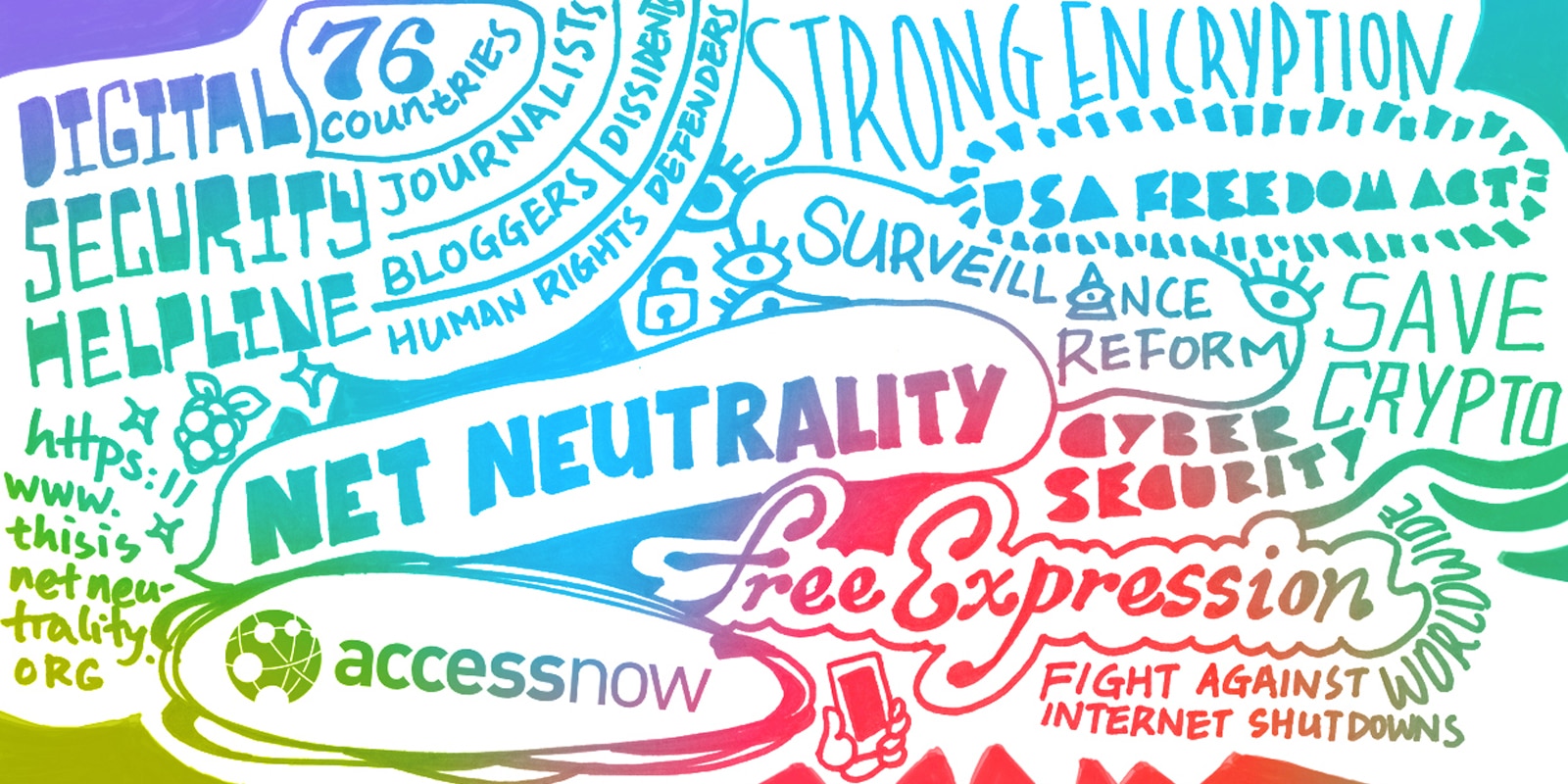Brussels, Belgium – Today a coalition of more than 30 NGOs and civil liberties organisations from around the world sent an open letter to lawmakers in charge of telecoms regulation for the European Union and global ICT ministers. The letter encourages regulators and telecommunications policymakers to support the development and implementation of robust Net Neutrality rules alongside the deployment of high-quality broadband and next-generation networks.
The letter is a response to the recently published “5G Manifesto”, in which telecoms operators threaten to withhold investing in next-generation mobile network such as 5G unless regulators water down rules for Net Neutrality and make other changes to provisions on network access and privacy. This attack on free expression and privacy comes just as the Body of European Regulators of Electronic Communications (BEREC) has closed its public consultation on how to implement Europe’s Net Neutrality rules and is developing the final guidelines. More than 500,000 individuals participated in this consultation via platforms provided by the SaveTheInternet.eu coalition, of which Access Now is a member.
“This attack on internet users’ right to free expression and privacy is a plain attempt at blackmail,” said Estelle Massé, Senior Policy Analyst at Access Now.
This is not the first time that telcos have engaged in disingenuous lobbying tactics designed to shrug off their obligations. The letter points out how the telecom industry has employed a strategy of warning that companies will be reluctant to invest in their own networks if they are confronted with regulations that promote competition and protect internet users. In reality, telecommunications companies realise economic benefit when they invest in their own networks, and these threats are likely to prove empty.
“We urge lawmakers to look beyond these unsubstantiated threats and reaffirm that the principles of an open and neutral internet are not negotiable,” she added.
For more information please see:
- Is 5G as terrible as the telecoms providers claim it is?
- BEREC is closing its consultation on Net Neutrality. Did we save the internet?
